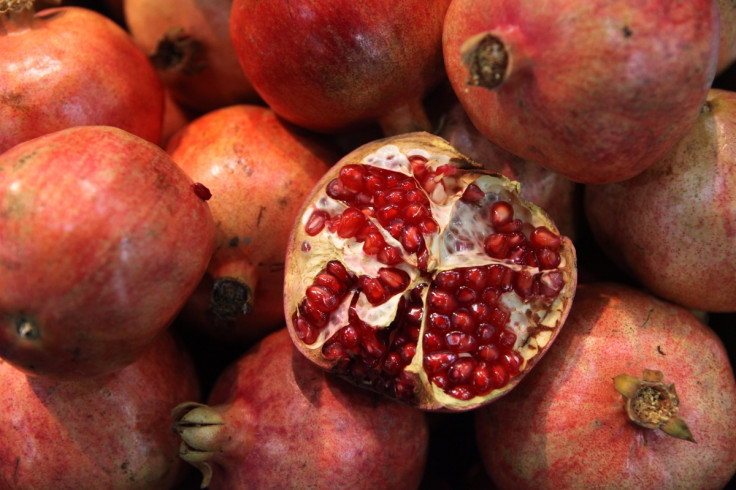Is pomegranate a superfruit? Anti-ageing properties revealed after exposure to gut bacteria
Molecules in the fruit react with gut bacteria in animals to create anti-ageing compound.
Pomegranates may hold the key to healthy ageing, scientists have said. The interaction between a specific molecule found in the fruit and gut bacteria could have a protective effect on cells.
Pomegranates are often hailed as superfruits which can slow-down our ageing process if they are eaten in sufficient quantities. However, there is still little scientific evidence of this and the mechanisms through which the fruits benefit health is not well understood.
To find out more, scientists from EPFL (Switzerland) investigated the way pomegranates interact with the body. Using animal models, they showed that molecules present in pomegranates promote cellular health by preventing a buildup of dysfunctional mitochondria.
Mitochondria are organelles responsible for creating the energy needed by the cells to function. They are found in the body of every living cells and are constantly recycled so that they can keep performing their vital functions – a process known as mitophagy.
But as people age, mitophagy becomes less effective and mitochondria accumulate in the cells, thereby affecting the health of many tissues and weakening muscles.
The study, published in Nature Medicine, suggest pomegranate could reverse this process of mitochondrial degradation and thus prevent cellular ageing.
Gut bacteria and pomegranate
The scientists have shown that pomegranate molecules called ellagitannins react with some of the bacteria found in the guts of worms C. elegans and mice. This creates another molecule called urolithin A which is known to have beneficial health properties.
"It's the only known molecule that can relaunch the mitochondrial clean-up process, otherwise known as mitophagy," says Patrick Aebischer, co-author on the study. "It's a completely natural substance, and its effect is powerful and measurable."
The lifespan of worms exposed in the study to urolithin A increased by more than 45% compared with the control group. In mice, a significant reduction in the number of mitochondria was observed, indicating that a robust cellular recycling process was taking place. Older mice, around two years of age, showed 42% better endurance while running than mice the same age in the control group.

Tests in humans
These promising results have paved the way for human trials. "The fact that this process works in two very distant evolutionary species, mice and worms, make us very hopeful that it can work on humans too, which is the ultimate goal of our research", says study last author Johan Auwerx.
Urolithin A appears to be a powerful anti-ageing compound, and pomegranates could form the basis of new treatments. However, eating pomegranates in itself is not enough to stop the ageing process, as you need the fruit reacts with specific gut bacteria. The amount of urolithin A that individuals are able to produce may thus vary widely, depending on the species of animal and the flora present in the gut microbiome.
The tests on human aim to identify which gut bacteria are needed and how pomegranates can be used to provide therapeutic and anti-ageing solutions for all.
© Copyright IBTimes 2025. All rights reserved.




















